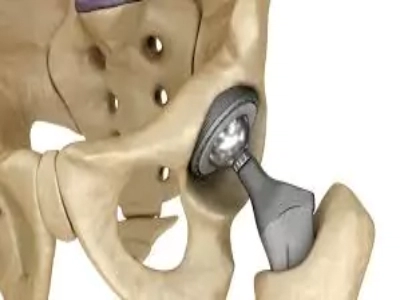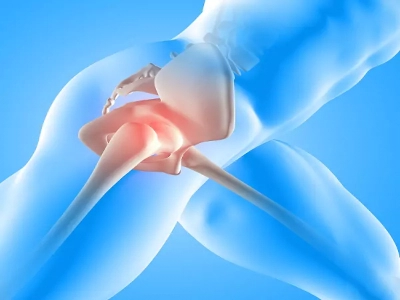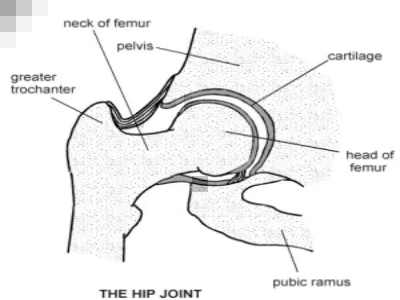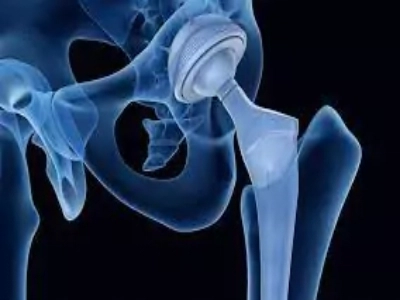Hip Replacement
If you are suffering from hip pain and are looking for the best care, we at Om Hip and Knee Specialty Orthopedic and Physiotherapy Clinic provide complete, personalized evaluation and treatment for hip replacement in Pune and Pimpri Chinchwad(PCMC). We use state-of-the-art, most advanced treatments for joint reconstruction for each individual to enable them to enjoy a Healthy life. With advances in technology and better materials and designs have led to a hip, knee and joint replacements that allow speedier healing and last for years.
We have done hip replacement in PCMC and also all over Maharashtra, India for many patients.
In case you need the first opinion or a second opinion, please feel free to get in touch with us
Hip Replacement Surgeon in Pune

Dr. Aniket Patil is one of the Hip and Knee Surgeon in Pune, PCMC. Hip replacement surgery is a procedure in which a doctor surgically removes a painful hip joint with arthritis. The Replaced it with an artificial joint often made from metal and plastic components. It usually is done when all other treatment options have failed to provide adequate pain relief. The procedure should relieve a painful hip joint, making walking easier.
Hip replacement surgeon in PCMC is a safe and effective procedure to relieve pain and help you resume normal activities. Total Hip replacement surgery is required for patients with severe hip osteoarthritis [wear and tear]. If your hip is severely damaged by arthritis or injury, it may be hard for you to perform simple activities, such as walking or climbing stairs. You may even begin to feel pain while you are sitting or lying down.
Total hip replacement relieves hip pain and increases your activity level. In this surgery worn-out parts of bones and cushions in the hip are excised and replaced by artificial materials [metal alloy and plastic].

Whether you have just begun exploring treatment options or have already decided to have total hip replacement surgery, the following information will help you understand more about this valuable procedure.
Hip Joint Replacement

The hip joint is important in the human body. It bears our body weight. The hip joint is a ball and socket joint formed between the pelvic bone [Acetabulam, the socket of the hip joint] and the femur [thigh bone, a ball of the hip joint].
Femur: It is the bone of the thigh. At the top of it, the femoral head is present as a rounded protrusion that articulates with the pelvis.
Acetabulum: It is a concave area in the pelvis, into which the femoral head fits.
Articular cartilage: The bone surfaces of the femoral head and acetabulum have a smooth layer of articular cartilage that cushions the ends of the bones and allows for smooth movement.
Synovial membrane: Inside the capsule, the surfaces of the hip joint are covered by the synovial membrane. This membrane nourishes and lubricates the joint.

Muscle
- Gluteals: The gluteals are the three muscles in your buttocks. Gluteus maximus, Gluteus minimus, and Gluteus medius.
- Quadriceps: Only rectus femoris originates from the acetabulum.
- Iliopsoas: This is the primary hip flexor muscle.
- Hamstrings: The three muscles at the back of the thigh are called the hamstrings. All three attach to the lowest part of the pelvis.
- Groin muscles: The groin or adductor muscles attach to the pubis and run down the inside of the thigh.
Get Moving Again
BEST HIP SURGEON PUNE
Helping you get back to an active lifestyle
Hip Joint Osteoarthritis

What is Osteoarthritis of Hip Joint?
Degeneration of joint cartilage [cushion] and the underlying bone. The most common cause of chronic hip pain and disability is arthritis.
Common causes of hip arthritis:
- Osteoarthritis.
- Rheumatoid arthritis
- Arthritis following injuries
- Osteoarthritis usually occurs after the age of 60-65. The cartilage becomes soft and underwent wear and tear. The bones then rub against one another causing hip pain and stiffness. Rheumatoid Arthritis is a disease in which the synovial membrane becomes thickened and inflamed which damages the cartilage and eventually causes cartilage loss, pain, and stiffness.

Total Hip Replacement in PCMC, Pune
Indications Of Total Hip Replacement:
The Total hip replacement surgery decision should be a co-operative one between you, your family and orthopedic surgeon:
- Hip pain that limits your activities of daily living, including walking, stairs climbing, and getting in and out of chairs. It may be very difficult to walk for 50 to 100 feet and may require support.
- Resting hip joint pain. Severe hip pain throughout the day.
- Chronic hip pain not relieved with non-operative treatment [like oral painkillers, local gel application]
- Restricted hip movement or stiffness in hip joint
Preoperative [Before Surgery] Preparation:
- Medical Evaluation: Physical examination with orthopedic surgeon and physician several weeks before the operation. the total hip replacement in pune this is needed to make sure you are healthy enough to have the surgery and complete the recovery process. Many patients with chronic medical conditions, like heart disease, may also be evaluated by a specialist, such as a cardiologist, urologists, before the surgery.
- Investigations: X-Ray, Blood investigations, ECG, 2D ECHO, Urine tests.
- Dental Check-up.
- Cardiology check-up.
- Additional medical conditions assessment.
- Arrangement for blood transfusion.
- Medication modification: Medicines like blood thinners should be adjusted or stopped as per physician advice.
Total Hip Replacement in Pcmc Surgery

1. hospital admission: The patient will be admitted one day before surgery.
2. Anesthesia:
- General Anaesthesia-(patient will be sleeping throughout the procedure) or
- Spinal (epidural) Anaesthesia– (it anesthetizes your body from the waist down).
Epidural anesthesia thin plastic tube is inserted in the lower back, through which a calculated dose of medication is injected during surgery, The making only the legs numb below the waist. It is safe for the elderly, and those who have high blood pressure or heart trouble & during surgery it helps reduce bleeding. After the surgery, it can be continued as epidural analgesia, eliminating the need for sedatives and allowing early exercises.
3. Antibiotics :
Intravenous antibiotics are started just before surgery and continued for about 2 to 3 days after surgery.
4. Surgery:
Surgical time is about 90 to 110 minutes. Along with surgical time, pre-operative preparation, anesthesia, and recovery stay will keep the patient in an operation room for 3 to 4 hours. The artificial hip joint consists of a ball, stem (the femoral component), and a socket (the acetabular component). There are many different types of a prosthesis made of various metals (eg: stainless steel, cobalt-chrome, titanium), ceramics, plastic, or a combination of these. The two components of the prosthesis fit together to form a smooth joint. Some prostheses are accommodated into place using special acrylic bone cement.
Others do not require cement and rely on bone growing around the prosthesis to anchor them into place.
The surgery begins with an incision being made along the side of the hip joint. The muscles that support the hip joint are detached and the damaged ball of the hip joint is cut from the top of the femur. The femoral component of the prosthesis is inserted into the femur and the acetabular component of the prosthesis is inserted into the prepared socket area in the pelvic bone. The artificial ball and socket are then fitted together and the surgeon attaches the muscles to the top of the femur.
After Hip Replacement In Pune

The patient will have a large dressing on the operated hip joint to protect the wound. Various drains will siphon off blood from the operation site to prevent it from collecting inside the wound which will be removed 24 hours after surgery. Your wound dressing will be changed regularly until it’s healed over. If required blood transfusion will be done as per reports and examination.
After hip replacement in Pune, the staff and physiotherapist will help you to get up and walk about as quickly as possible. Generally, you’ll be helped to stand 24 hours after your operation. Walking with a frame or crutches is encouraged. Most people can walk independently with sticks after about 1 to 2 weeks but this can vary depending on the individual.
Dr Aniket performs Hip Replacement surgeon In Pune, PCMC, Generally patients are discharged after 4 to 5 days of surgery. Discharge to home is generally assessed by a recovery of the patient by operating surgeon and physician.
During your stay in the hospital after hip replacement surgeon in Pcmc, a physiotherapist will teach you exercises to help strengthen your hip joint muscles. You can usually begin these the day after your operation. It’s important to follow the physiotherapist’s advice to avoid complications or dislocation of your new joint. It’s normal to experience initial discomfort while walking and exercising, and your legs and feet may be swollen.
Wound Care – The stitches or staples will be removed about two weeks after surgery.
Possible Complications After Surgery:

Because of modern advanced medicine, the complication rate of Total Hip Replacement surgery is less. Some of them are
- Infection: Can be avoided with modern well-equipped operation room complex, antibiotics, etc…
- Wound healing problem
- The blood clot in the leg vein: Prevented by exercises, blood thinning medication, anti DVT stockings.
- Medical complications: Heart attack, stroke, etc..
- Dislocation of new joint: It can be avoided by some simple precautions and modifications of your daily living.
Your Recovery At Home
Total Hip Replacement in pune is a major operation and muscles and tissues surrounding your new hip will take time to heal. You feel extremely tired at first. Follow the advice of the surgical team. as soon as possible The exercises your physiotherapist gives you are an important part of your recovery. It’s essential to continue with them once you’re at home. Your rehabilitation will be monitored by a physiotherapist. You should be able to stop using your crutches or walking frame and resume normal leisure activities six weeks after surgery. However, it may take up to three months for pain and swelling to settle down. You should be able to resume most normal light activities of daily living within three to six weeks following surgery. Some discomfort with activity, and at night, is common for several weeks.
Even after you have recovered, it’s best to avoid extreme movements or sports where there’s a risk of falling, such as skiing or mountain biking. Your doctor or a physiotherapist can advise you.
Diet:
Some loss of appetite is common for a few days after surgery. A balanced diet, often with iron and protein-rich supplement, is important to promote proper tissue healing and restore muscle strength. Be sure to drink plenty of fluids.
Care After Total Hip Replacement:
- Use your walking aids but aim to gradually decrease the amount you rely on them as your leg feels stronger.
- Keep up your exercises to help prevent stiffness and do not force your new hip joint.
- Raise your leg when lying in bed and use ice packs to help with swelling.
- Resume sitting, standing, walking up, and downstairs.
- Avoid falls, high impact activity.
- Avoid sitting in a crossed-legged and squatting position.
- Light sporting activities like swimming/ golf/ driving are permitted after 3 months.
Frequently Asked Question
” PAIN FREE LIFE JUST A CLICK AWAY “
Incoming Tag- hip replacement surgery in Pune, hip replacement surgery in PCMC, total hip replacement surgery in Pune, total hip replacement surgery in Pimpri Chinchwad (PCMC), hip replacement surgeon in Pune, hip replacement surgeon in PCMC, hip replacement in Pune, PCMC , hip replacement in PCMC, total hip replacement in pune, total hip replacement in pcmc
